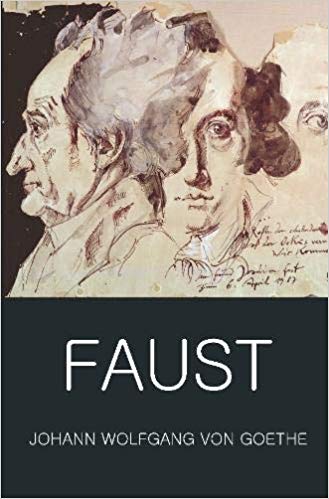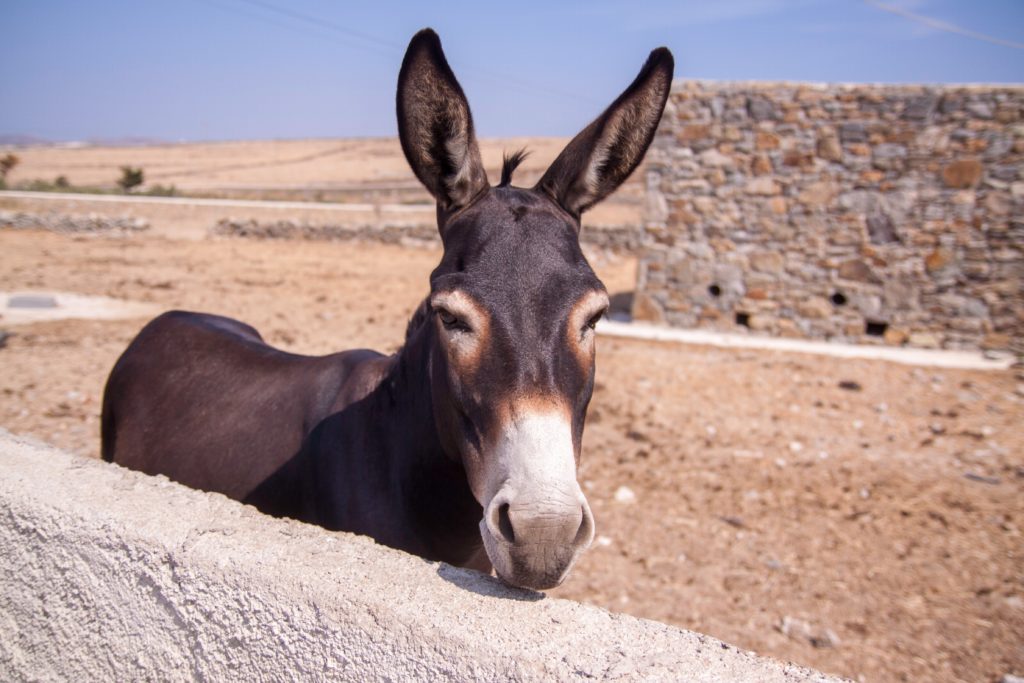Doctor Faust and the little donkey (published in Italian in Osservatore Romano, Aug. 26 2017)

Reading the beginning of Faust, it seems as if it was written for somebody doing research and teaching today, as was doing Goethe in his days :
- I have studied now Philosophy, Law and Medicine
- And even, alas, Theology
- From end to end, with all my forces.
- And now here I am, poor fool,
- They call me Magister, they call me Doctor, and it has been at least 10 years
- That I have led my students by the nose
- And nothing, I see, is given us to know.
To the discouragement of a man who sets himself as center to understand, there is a meditation to propose.
The good news that Jesus announced passing in the streets was his own person, God who came down to hearth. But, for the final revelation of his royalty, He chose to pass between the crowds on the back of a donkey.

Who knows where that donkey was, when Jesus sent to search for it. Probably it had no desire to leave the grass that it was eating. Donkeys are simple but stubborn animals, and can bite. Who knows how the disciples succeeded in persuading the little donkey to leave the tranquillity of the field, to take Jesus on its back and carry him around through so much blaring and confusion. Certainly, the donkey did not understand what was happening to its own self, which would make it very famous in history.
The little donkey was perhaps related to another one, just as famous, which about thirty years earlier found itself in a stable to warm up with its breath a new-born baby.
The anthropomorphic vision of donkeys is nothing new and can be found for instance in that pearl of Latin literature that is the Golden Ass of Apuleius. But I came to meditate on the destiny and task of donkeys reading a completely different and beautiful book, written as the story of her own soul, by Teresa of Lisieux, who was proclaimed Doctor of the church by John Paul II.
Teresa tells of a personal experience, seemingly unimportant. This young nun shared a spiritual insight with a companion who immediately made it her own in speaking with other nuns in the convent. Teresa was bewildered at the stealing of her idea. However, it comes to mind another donkey of which spoke La Fontaine. This donkey carried the relics of a saint and, wherever it passed, people honoured and bowed to it. We too have a load on our back and we too, like the donkey of La Fontaine, feel important for what we carry and with which we identify ourselves. It is however our load that gains the respect and recognition of others.
I did recognize myself in this donkey, like many others probably could. The value and uniqueness of our person seem to depend on the “originality” of thought or action of which we are capable and which result in signs of recognition and appreciation. And when these signs are denied or usurped, it seems as if the ground is sinking. This happens to researchers and academics, as well as artists, actors, sportsmen and others, in different fields and at any age, starting from kindergarten. Very often we forget that we are only bearers of a load that does not belong to us, with some precious stones along with so much ballast.
In our going, we would like to keep for ourselves what we are and do, and that distinguishes us from others. But we remain only ignorant donkeys, bent under a crushing load. Instead of protecting it jealously, it is better to be ready to share it with whoever passes by. Every donkey goes its way and, if it finds itself in a forest, it often does not know where to go. But it has a choice. It can proceed slowly to preserve the load, making sure it does not fall. Or it can jump happily forward, knowing that if something falls, it will not be lost. Someone will pick it up and it will always be possible to find something new and beautiful along the way. By doing so, the donkey may feel freer and lighter, and willing to take Jesus on the back, carrying it around the streets of the world, so that everyone can listen and follow. By doing so, it is possible that even Faust, in the end, may worship.
